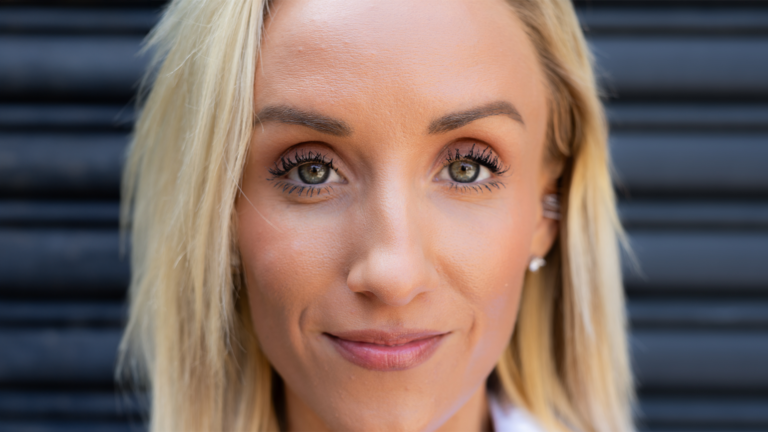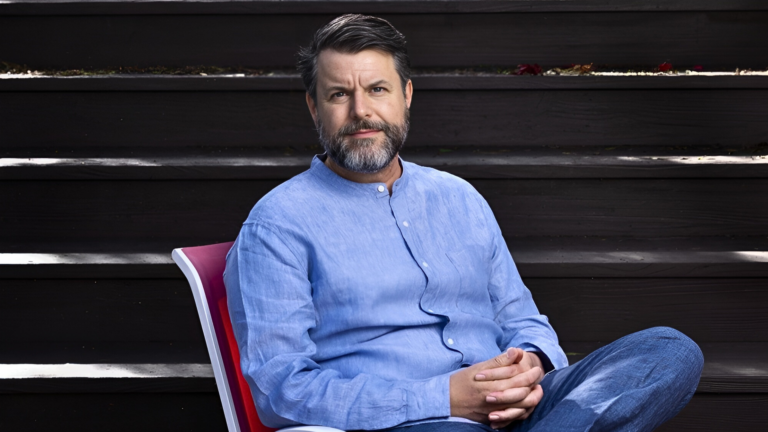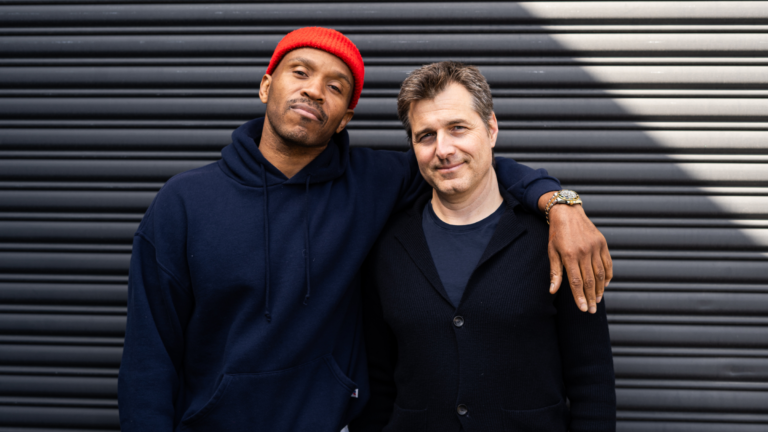This week’s conversation is with Dr. Tony Nader, a medical doctor trained at Harvard University and Massachusetts Institute of Technology with a PhD in neuroscience.
Tony is a globally recognized expert in the science of consciousness and human development.
His training includes internal medicine, psychiatry, and neurology. He’s the successor to Maharishi Mahesh Yogi and the head of the Transcendental Meditation organization globally.
Tony was appointed assistant director of clinical research at MIT, and was a clinical research fellow at Massachusetts General Hospital, Harvard Medical School.
He’s conducted research in neurochemistry and neuroendocrinology; the relationship between diet, age, behavior, mood, seasonal influences, and hormonal activity; and the role of neurotransmitter precursors in medicine.
In his new book, One Unbounded Ocean of Consciousness: Simple Answers to the Big Questions in Life, Tony comprehensively examines what scientists call the “hard” problem of, What is consciousness?
And that sets the tone for this conversation – Tony expands on his understanding of the relationship between mind and body, consciousness, and physiology and the furthest reaches of human potential.
“The more people go deep within themselves, the more they are in touch with the source of thought, the source of creativity and the source of intelligence, which brings us back to the true self.”
In This Episode:
Upbringing in Lebanon
I grew up in Lebanon, a small country in the Middle East, which had, at the time when I was growing up, an absolutely what I thought, heavenly environment. We had skiing. We had the ocean, the Mediterranean Sea, the mountains, fruits, flowers, everything in nature that is inspiring in beauty and in generosity of nature’s gifts with the sun and the seasons, and a life in which I was comfortable and had all the things I needed to have in order to grow up and learn and expect life to be absolutely beautiful and on top of all that one can expect. And then something happened and it blew up as an explosion of civil strife between different people. And it became just the complete opposite to what I have known.
How the events of war shaped him
The city Beirut was divided into what they used to call the Christian side and the Muslim side. And the American university of Beirut, where I was, was in, happened to be in the Muslim side. My background was a Christian side. So I was constantly a little bit under danger, particularly that some of my relatives were leaders in the side that is the Christian side. And therefore, my name was known and I could at any time be exposed to danger and my life, what was constantly I had to watch out, I couldn’t walk out into the streets. I had to go to underground to go to the hospital. At the same time, I was seeing all these catastrophic situations of injury and people suffering and children under tremendous strain and stress. And it made me ask big questions about life, the real big questions.
The question he began asking himself
It became not just the philosophical ideas and philosophical thinking or spiritual undertaking, but really an existential reality that I had to face. Why are people killing each other? Why, what is going on in the minds and the hearts and the feelings of individuals and the groups who controls them? What’s the purpose of it all? Where are we going? What can we do to make it better?
Going beyond the physical aspect of medicine
For me, it was all like, if we understand the material value, the physical value and it’s complex interactions between neurons and chemistry and electricity of the nervous system and its building blocks and all of that, we could actually understand a lot about humans and their behavior and what they can achieve. So in that sense, it was helpful, but more helpful to actually go beyond it in a sense and find something completely different. So the solution was not where I thought it was.
What does it mean to be one’s best self?
To be one’s best, is to be able to achieve one’s goals and desires in life and have a meaning in our life so that there is meaning in what we do. And not becoming a football of situations and circumstances where we are happy if something comes out on the outside, we are not happy if something happens that is not according to our thinking. And therefore, our moods, our feelings are subject to change based on circumstances and situations. And situations and circumstances are changing all the time. That is the nature of life. That is the nature of the relative. And therefore, if we are established in our awareness with the outer values only, we are not anchored in that self. That can be something very beautiful.
There is more to our identity than we think
We associate ourself with a name, with a profession, with a look, with a nationality and all of that. And to a large extent, of course, they are also ourself. We cannot ignore that. But there is something much more profound that I’ve came to discover and understand, and that is the inner self, which sometimes we don’t have contact with. We don’t associate ourself with that inner self. And that is what I discovered through the techniques that I have learned, in particular, transcendental meditation. And that is to go beyond these outer values and find within some very peaceful part of our reality. And it’s not just peaceful, it’s also the source of our thinking, the source of our creativity. And find the dimension of what ourself is that’s beyond just the surface definitions. And ultimately, this establish us, anchors us in something more stable and therefore, gives us platform for action which is much more stable in itself and not subject to the changes as much.
The “Ultimate Self”
The ultimate self takes us to the ultimate reality of what life is about, to where things come from. What is the true nature of not my personal inner individual self, but the true nature of everything? And this takes us to considerations if we like in physics, but also in mind, body, in even spirituality, to deal with consciousness, what is awareness and all of these points. So there is a self which is a unified field of being that itself manifests as all the different multiplicity and variety in life and in nature. And it includes the entire universe, not just individual human beings, but also all that there is.
The ocean metaphor
The mind is like an ocean. Active on its surface with waves on its surface and quieter as you go deeper into its true reality. If we are on the surface of the mind, we are on the waves and we experience the waves. And we know, we think that this is all there is, and our mind is there. And if one acknowledges oneself or associates oneself with one of the waves, then that’s the wave and you ride the wave and that’s it. Now, if you leave the wave a little and look inside and dive, you will find that there is deeper value. And the deeper you go, the more settled it is and the more connected it is. Till you get reach the bottom of the ocean, where it’s completely quiet and silenced. But that is what supports all the surface values of the waves on the surface. So the apparent self, the self we usually associate ourself with, is like the wave. And the true self is like the depths of the ocean. Or if you like the entire ocean, which takes the wave also into consideration, but it doesn’t ignore the source of the wave.
What is consciousness?
Consciousness is not like a substance. Because you can’t touch it through your senses, but it’s the window through which we see everything, we experience everything. So consciousness is simply the ability to be aware, to be conscious and also to be conscious that we are conscious… So without consciousness, you cannot experience anything, you cannot plan anything, you cannot understand anything, you cannot live or share or wonder about the universe and what is there. So that is why consciousness is so important and so primary.
Collective consciousness and its effects on the individual
Collective consciousness influences the individuals in society so that a weaker individual or an individual who is not anchored in themselves, they are subject to this collective consciousness and therefore their behavior is going to would be very much influenced. So if it’s a stressed collective consciousness and some weaker individuals or individuals who are not holding onto their inner strengths and inner self, as we defined, those are likely to have problems or not to be able to act properly and even to commit crime and create issues and problems, get into accidents or whatever that dictates. So this is where there is an individual to collective consciousness interaction and also responsibility.
The responsibility of the individual
To have a green forest, you need green trees. So to have a peaceful society, you need peaceful individuals. So the responsibility also starts with the individual. We have to improve our awareness, our consciousness, if we want to improve the collective consciousness.
What is transcendence?
Transcend is a term that means to go beyond, just simply that. And transcendental meditation is a technique of the mind that allows us to go beyond the surface of the ocean that we just described, the waves. And therefore we go into the depths of things and we reach to the bottom of the ocean, where we can act from a level that is much more powerful… the ultimate transcending is to go to pure consciousness, pure being. And that is the experience that happens with transcendental meditation. You go within and you find this pure consciousness, this pure being in which you are aware, but aware of nothing specific, you’re not asleep, you’re fully awake, you’re even more alert, but there is nothing, no content of specificity in the aware. And that is really transcendence.
“Everything we do influences our awareness…”
Whatever we put our attention on, grows stronger in our life. So, if you see something good and helpful and happy and nice and inspiring, it impacts you and it impacts your awareness, your vision. You’re not the same when you come out of a talk that is inspiring, that gives you light and knowledge, rather than coming out of a situation where there is stress and fear and pain. So, our vision, we can say beauty lies in the eyes of the beholder. It really depends on also the filters that we have and that grows. So, what we need is to clean up the filters in a sense. So, everything we do has an impact. Even if you eat the wrong food, it has an impact on the way your physiology works, your nervous system. If you have a cold, you feel miserable. You wonder if you are ever going to be the same again, and then you come out and you wake up and you open your eyes and you see, consciousness comes back when you recover. So, there is a very deep and profound interaction between mind and body, because ultimately, as we will come to the conclusion, they are the same, they are all consciousness.
Using transcendental meditation to relieve stress
Stress is a great problem in society. And the stresses, how are they usually relieved? Through rest. Do we get rid of stress? If you have pain in the muscle, or you have some stress fatigue, you don’t try to pull it out of the muscle. You rest. And the body has the ability to heal itself, because it can get rid of this abnormal functioning by healing itself. The deeper you give it rest, the deeper the stresses are released. And the more deep the stresses are released, the better your physiology functions, and the clearer is your mind. And therefore, you not only access that field of creativity and intelligence, which is your true self. So, you come back home, going back to yourself, but also you get cleaned up. You get cleared up from those filters, that damage your perception and don’t allow you to see broadly.
Focus on the plane, not the bulb
In the 1970s, there was Eastern Airline flight flying from JFK to Miami. And there were three pilots, an engineer and two pilots. And then when they arrived almost near the Everglades, they found that there was a little bulb that was not functioning properly. And so, all three of them, one had to go down to check it out and all the things about this bulb, what happened to the bulb and all of that. And they forgot that the autopilot wasn’t anymore activated. And unfortunately they crashed. And probably you’re aware of this. I don’t know if you do, but their focus on a small, little, tiny point because of stress, made them forget the broad comprehension, the field awareness. It’s like, don’t get bogged down with some small thing and forget to fly the plane. This is something that unfortunately happens to people in their lives. They focus on a small thing, they lose broad comprehension, and how many people crash their plane, crash their life that they have because of a small thing
The best leaders have broad consciousness
The great leaders of companies and societies. When they have many factors, they know they have to take a step back, but that step back can be on just a conscious intellectual level, trying to analyze things. But can also be on a much more profound level, which is to transcend, which is to go inside, and go to the ultimate stepping back, and stepping back here doesn’t mean running away. It means broadening awareness, broadening consciousness.
Rearranging Maslow’s hierarchy
When [Maslow] started off, he said, okay, humans, basically first they need their basic survival things. You need to eat. You need to maintain your physiology. If you don’t have that, you cannot go to the higher level. You don’t have time. It’s like, if you’re worried about whether you get your food today or not, how can you think of philosophy and worldview and all that? It’s not ideal. Then above that, he started to put things like aesthetic needs, you want beautiful things, you want to hear nice music, you want this and that. And then higher motivations and higher motivations. And at the end, he put on top, transcendence. And he built it up as the hierarchy of motivation, the motivational things and all of that. Towards the end of his life, he actually started to say, well, it’s no more something that happens in sequence. And actually, he was believing that transcendence can be primary and important. And this is really where, if you ask me, to highlight these values, they all are part of what we need to do… Now, I have a different paradigm, and that is, go to the highest first. Which means, if you want your basic needs, transcend. Which seems like ridiculous. How? What do you mean?
Technique of transcendental meditation
You sit comfortably in a chair, you close the eyes and you allow the mind to settle down. You don’t have to force it. It is not contemplation. So it’s not a procedure where you analyze the thoughts or you manipulate the thoughts. It’s not focusing, which means it’s not concentration. So there is no contemplation, no focusing, no even monitoring of what is happening and forcing it to go anywhere, which is usually in mindfulness, trying to shift the attention here and there. This technique is so natural that children from five years old do it… this technique of going into the self is a technique also for action, because you prepare yourself with deep rest, for dynamic action on the outside.


